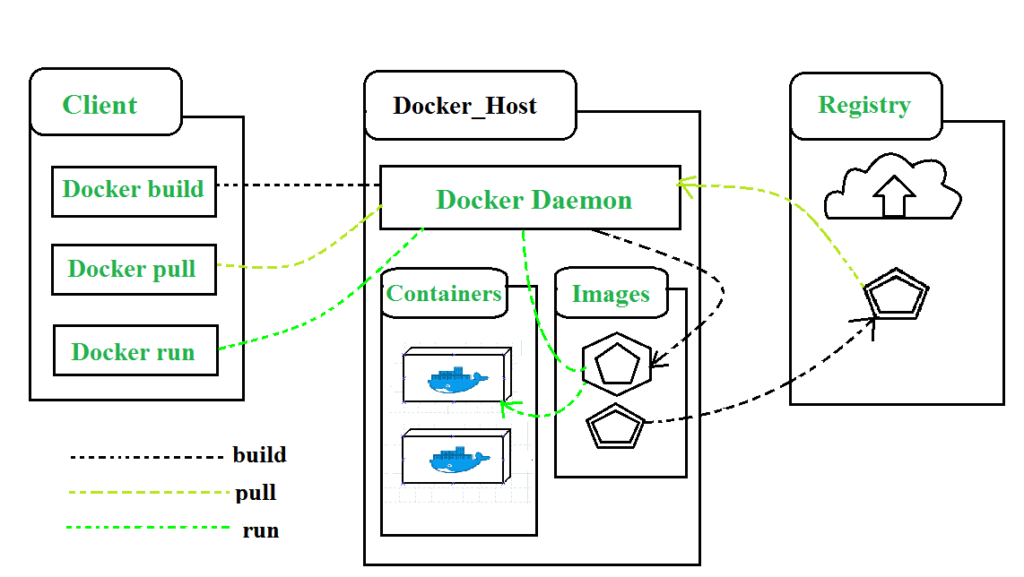Features of Docker
Docker is one of the most popular open-source sets of platforms for developing and automating the deployment of applications. It deploys applications into containers and enables us to separate our applications from infrastructure. It is designed to provide a lightweight and fast environment in which to run our code as well as an efficient workflow to get that code from our laptop to our test environment and then into production.

Open-Source Platform
One of the most important aspects of an open-source platform is the ability to choose which technology to use to complete a task. If a user needs a lightweight, clean environment for testing, the Docker engine can be useful for lone developers. Docker Community Edition (docker-ce) is a great way to get started with containers if Docker is already installed on your system and everyone around you is familiar with the Docker toolchain.
Easy Way of Delivery of Applications
It is one of the most significant Docker features that allows you to rapidly and simply set up the system. Because of this functionality, codes may be input quickly and easily. Because Docker is utilized in a number of places, the infrastructure is not related to the application environment.
Docker containers use a shared operating system and only include the necessary dependencies, making them much smaller and faster to start than traditional virtual machines. This makes them ideal for deploying applications in various environments, as they can be easily moved between servers, cloud platforms, and local development environments.
Fast and Efficient Development Life Cycle
Docker seeks to shorten the time between writing code and having it tested, deployed, and used. Its goal is to make your apps portable, simple to construct, and simple to collaborate on.
Segregation of Duties
Docker is intended to improve consistency by ensuring that the environment in which your developers write code is consistent with the environments in which your applications are deployed. This reduces the possibility of “worked in development, now an ops issue.”
Service-Oriented Architecture
Docker also supports service-oriented and microservice architectures.
Docker suggests that each container runs only one application or process. This encourages the use of a distributed application model in which an application or service is represented by a collection of interconnected containers. This greatly simplifies the distribution, scaling, debugging, and inspection of your applications.
Isolation and security
The Security Management feature of Docker saves secrets into the swarm itself. Docker containers provide a high level of isolation between different applications, preventing them from interacting with or affecting each other. This makes them a secure and stable platform for running multiple applications on a single host.
Scalability
The platform is easily scalable as Docker containers are lightweight. The portability of Docker also makes it simple to dynamically manage workloads, scaling up or down apps and services as business demands in near real-time. Docker provides a simple and intuitive command-line interface that makes it easy to create, manage, and deploy containers. It also offers a wide range of tools and integrations for different development environments, making it easy to incorporate into existing workflows.
Reduction in size
Docker offers a great degree of capacity to minimize development size. The rationale for this is that it may deliver a reduced operating system footprint via containers.
Image management
Docker uses images to store the necessary files and dependencies needed to run applications. These images are created using a Dockerfile, which is a set of instructions that tells Docker how to build the image. Developers can use these images to create new containers or update existing ones. Docker also has a registry called Docker Hub, which is a central repository for storing and sharing images.
Networking
Docker allows developers to easily connect containers and services using its built-in networking capabilities. It supports the creation of virtual networks and allows developers to specify which containers can communicate with each other. This makes it easy to set up and manage complex microservices architectures.
Volume management
Docker provides a volume management system that allows developers to persist data generated by containers. This is useful for applications that require a database or other data storage. Docker volumes are stored on the host system and can be shared between containers.